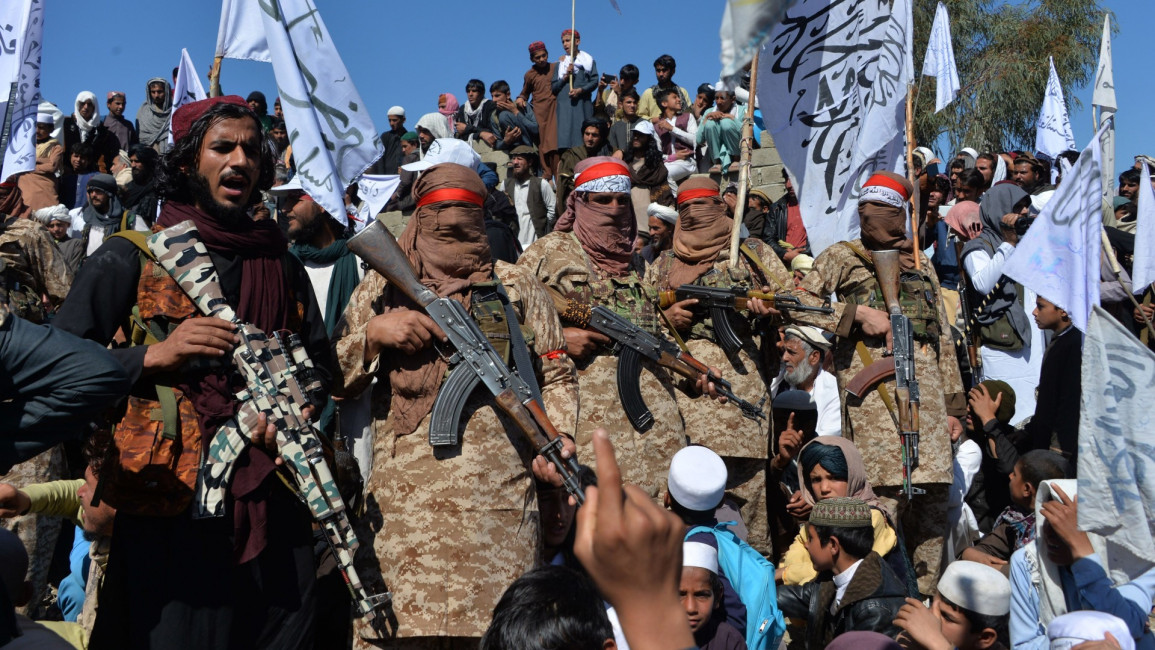Violence has soared as the United States military presses ahead with a plan to withdraw all of its troops by September, bringing an end to a 20-year military operation in Afghanistan.
Clashes between the Taliban and Afghan forces erupted early on Sunday when the insurgents attacked security checkpoints on the outskirts of Lashkar Gah, the capital of Helmand province, said provincial council chief Attaullah Afghan.
An Afghan army spokesman in the south confirmed fighting had resumed as the three-day temporary truce ended late on Saturday.
The Helmand governor's office said that 21 Taliban fighters had been killed in the morning fighting.
Fighting lasted for several hours and ended later in the day, the Afghan army said, adding that more insurgent attacks were expected at night.
"They (Afghan forces) started the operation... do not put the blame on us," Taliban spokesman Zabihullah Mujahid told AFP.
Washington has vowed to end America's longest war, but missed a May 1 deadline to withdraw agreed with the Taliban last year in return for security guarantees and a promise to launch talks with the Afghan government.
President Joe Biden pushed back the date to September 11 -- exactly two decades on from the terrorist attacks in the United States which led Washington to invade Afghanistan and oust the Taliban.
Tens of thousands of Afghans have been killed and millions have since been displaced by the conflict, which has seen a resurgent Taliban take hold of large swathes of the country.
Nishank Motwani, an independent Afghanistan expert based in Australia, told AFP the Taliban viewed the American withdrawal as a win.
"It gives the insurgents a proclamation of victory, bookends their removal and eventual return to power, and signals that the end is in sight for the Afghan republic in its current state," he said.
Fragile truce ends
Sunday also saw Afghan forces begin an operation to retake a district on the outskirts of Kabul that had been captured by the Taliban before the ceasefire.
Nerkh district - about 40 kilometres (25 miles) from Kabul in neighbouring Wardak province - has long been used as a gateway to the capital and an insurgent stronghold from which to launch deadly attacks.
"Today, our forces managed to recapture a strategic area in the district," Rohullah Ahmadzai, a spokesman for the defence ministry said.
Government forces have continued to receive vital air support from US warplanes even as foreign forces withdraw, and there are concerns over whether they would be able to hold back the insurgents without Washington's help.
"It is now going to be very difficult for us to conduct operations," an Afghan army officer said after US forces pulled out fully from Kandahar Airfield this week, once the second largest base of coalition forces.
"Our aircraft can't fly at night so the night operations are going to be difficult."
The three-day truce initiated by the Taliban and swiftly agreed to by Kabul had largely held during the Eid holidays.
But the calm was broken on Friday by a blast at a mosque near Kabul, which killed 12 worshippers including the imam.
The Taliban denied it was involved in the attack, which has been claimed by the Islamic State group.
The truce was only the fourth agreed pause in fighting in the two-decades-long conflict.
The warring sides launched unprecedented peace talks in September in Qatar, but they have stalled in recent months.
Some negotiators from the Afghan government and Taliban said they had met in Doha on Friday to discuss speeding up the faltering talks.
As violence raged, including a wave of targeted killings on Afghanistan's educated class, international efforts had been made to jump start the negotiations - including a one-day conference in Moscow in March.
Turkey was also scheduled to hold an Afghanistan conference in late April - talks that were postponed indefinitely after the Taliban declined to attend.
Follow us on Facebook, Twitter and Instagram to stay connected



